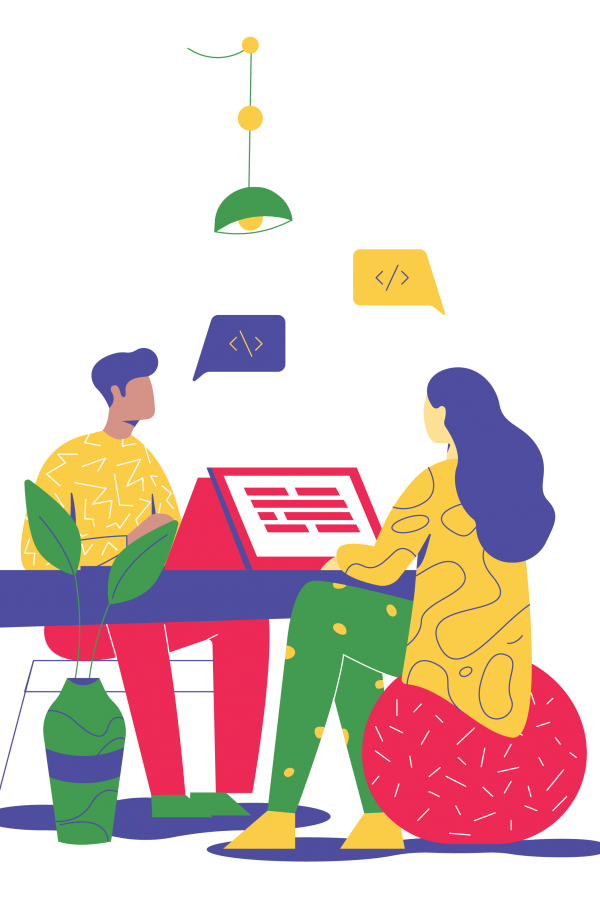Acing an interview requires a certain set of skills. While your resume, experience, and expertise speak to your abilities, how you perform in an interview shows hiring managers your personality, character traits, and your ability to communicate and behave in a desirable manner. Here we explore what interview skills are and the top 15 skills you need to ace your next job interview.
Researching the company
You should never show up to a job interview with little or no knowledge about the company and the position you’re interviewing for. Before the interview, take time to thoroughly research the company and take notes of information you find especially appealing or that you have questions about. Not only does this ensure you know exactly what to expect if you are hired, but it also shows initiative on your part and demonstrates that you possess solid research skills to the interviewer.
Spending time preparing
You should avoid winging an interview at all costs. Many employers can quickly recognize a candidate who hasn’t spent time preparing for an interview, and this can ultimately have a negative impact on your chances of being considered for the position. Before you go to the interview, do the following to ensure you’re thoroughly prepared:
- Re-read the job description and take notes of any areas you have questions about.
- Look over your resume so you are familiar with how you initially presented yourself to the employer.
- Spend at least 30 minutes practicing hypothetical interview questions with a friend or family member to get warmed up for the real thing.
- Write down several examples of times in which you portrayed your skills and abilities as they relate to the job you’re interviewing for.

Dressing for success
Your outward presentation plays an important role in how an interviewer perceives you. Take time to select an appropriate outfit the night before your interview. If you’re unsure of what attire is appropriate, consider calling the human resources department of the company and asking what their preferred work dress code is.
Arriving on time
Arriving late to an interview could result in you missing out on being considered for the job. Make it a point to get to the interview at least 10 minutes early to ensure you make a positive first impression.
Practicing good body language
Your body language is an important form of communication, so take notice of how you use it during an interview. Good rules of thumb include maintaining eye contact, holding good posture throughout the interview, smiling often, and leaning forward slightly when responding to questions or engaging in conversation with the interviewer.
Asking questions
Don’t be afraid to ask questions throughout the duration of the interview, whether they be related to an interview question or to the company or position. Asking questions encourages a two-way conversation and demonstrates that you care and are listening to what’s being said.
Thinking through your answers
Take time to think through your answers before responding to a question. This ensures that you’re providing the most effective and relevant answer possible and also helps you avoid uncomfortable ‘ums’ during the interview.
Taking notes
Taking notes is a great way to ensure you remember important information and to make sure you don’t forget to ask questions you think of while the interviewer is speaking. Bring a pen and pad of paper to the interview and take short-hand notes when necessary.

Using the STAR method
The STAR method, which stands for Situation, Task, Action, and Result, is a great way to effectively portray your skills and expertise to interviewers. Use this method when answering questions about your skills, experience, or previous work duties.
Portraying confidence
Exuding confidence in an interview will help you feel more comfortable and confident in yourself and will also show the hiring manager that you believe you’re truly suited for the position. However, be sure to not be so confident that it comes across as arrogance. Focus on being polite and thoughtful while also portraying a professional level of confidence throughout the interview.
Practicing active listening
When the interviewer is speaking, practice active listening by focusing solely on what they are saying, nodding your head at appropriate times and responding with well-thought-out answers.
Showing interest
Showing interest in the job and company is a great way to demonstrate your excitement about the job opportunity. Express the passion you have for that particular work and reiterate your interest in the position at the conclusion of the interview.
Using appropriate language
It’s important to keep your language professional during a job interview. Avoid using slang or curse words and speak in a clear and concise manner.
Emphasizing your strengths
Don’t be afraid to talk about your strengths continuously throughout the interview. Take advantage of any opportunities presented to provide examples of your strengths. If you feel uncomfortable talking about yourself in such a manner, spend some time practicing before the interview so you can do so in a polished way.
Expressing your thanks
Once the interview is over, don’t forget to thank the interviewer for their time and consideration of you for the position. You should also send a thank-you note or email when you get home from the interview.


